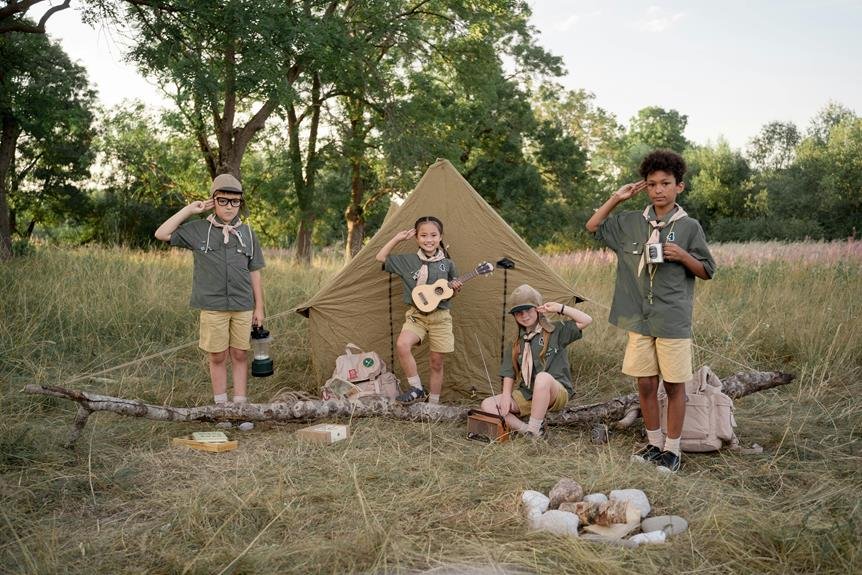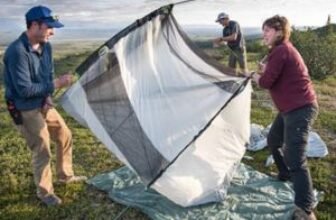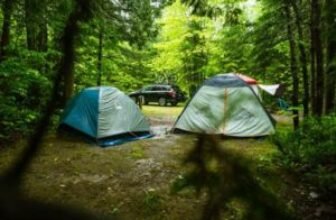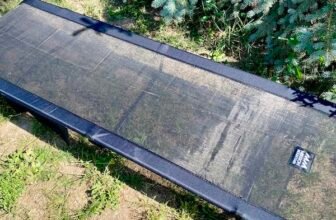
When embarking on your next backpacking adventure, the choice of tent can greatly impact your overall experience. Imagine a shelter that offers the perfect balance of weight, size, and durability, ensuring a comfortable night's rest regardless of the conditions you encounter. As you navigate through the vast array of options available, consider how each factor plays a pivotal role in your selection process. Stay tuned to discover the key considerations that will lead you to the ideal backpacking tent for your outdoor escapades.
Factors to Consider
When choosing a backpacking tent, consider the weight, size, and weather resistance to ensure it meets your needs. The weight of the tent is crucial for backpackers as you'll carry it on your back for long distances. Opt for a lightweight tent without compromising on durability.
Size is another vital factor to think about. Make sure the tent is spacious enough for you to sleep comfortably but not too bulky to weigh you down. Weather resistance is key for staying dry and warm during your outdoor adventures. Look for tents with sturdy materials, sealed seams, and a high waterproof rating to shield you from rain and wind.
Additionally, assess the tent's setup complexity. Choose a tent that's easy to pitch, especially if you're new to camping. Ventilation is essential to prevent condensation inside the tent. Pick a tent with adequate ventilation options to keep the air circulating.
Lastly, consider the tent's price point. Find a balance between quality and affordability to get the best value for your money. By evaluating these factors, you can select a backpacking tent that suits your needs perfectly.
Tent Capacity
Curious about how tent capacity can impact your backpacking experience? When choosing a backpacking tent, it's crucial to consider how many people will be sharing the tent with you. Tent capacities typically range from solo tents to 4+ person tents. Opting for a larger capacity tent provides more space but also adds weight to your pack.
If you're backpacking solo, a one-person tent is lightweight and compact, ideal for minimizing pack weight. For couples or friends, a two-person tent offers a balance between space and weight. If you plan to backpack with a group or family, consider a larger tent with a higher capacity.
Choosing the right tent capacity ensures everyone has enough room to sleep comfortably while keeping weight and pack size manageable. It's essential to strike a balance between space and weight to enhance your backpacking experience. Before making a purchase, think about your typical backpacking companions and the level of comfort and space you all require during your outdoor adventures.
Seasonality and Weather Resistance
Consider the seasonality and weather resistance of a backpacking tent when evaluating its suitability for outdoor adventures.
The seasonality of a tent refers to the conditions it can withstand, such as the temperature range, wind strength, and precipitation levels. A 3-season tent is suitable for spring, summer, and fall, offering good ventilation and protection from light rain. If you plan to backpack in winter or face harsher conditions, a 4-season tent is more appropriate, providing better insulation, wind resistance, and snow shedding capabilities.
When it comes to weather resistance, look for features like a waterproof rainfly, sealed seams, and a bathtub floor to keep you dry during rainy days. Additionally, a tent with a sturdy frame and guy lines will offer better stability in windy conditions. Pay attention to the tent's hydrostatic head rating, which indicates its water resistance level – the higher the rating, the more waterproof the tent is.
Weight and Packability
For backpackers seeking efficiency and convenience, the weight and packability of a tent are crucial factors to consider. When selecting a backpacking tent, opt for lightweight materials like silnylon or cuben fiber to reduce the overall weight you'll be carrying on the trail. A lightweight tent can make a significant difference, especially on long hikes or steep terrains where every ounce matters.
Packability is equally important. Look for tents that can be compressed and easily fit into your backpack without taking up too much space. Tents that come with a compact carrying bag or stuff sack are ideal for backpackers as they can be efficiently packed and organized alongside other gear.
Consider the size of the tent when packed as well. Smaller tents tend to be more packable but may sacrifice interior space. Strike a balance between size and comfort based on your preferences and needs. Remember, a lightweight and packable tent can enhance your backpacking experience by lightening your load and simplifying your journey.




